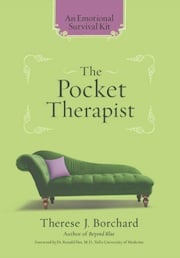 (Image by Stephen Webster/Wall Street Journal)
(Image by Stephen Webster/Wall Street Journal)
Health Journal columnist Melinda Beck penned an amazingly accurate and helpful article in the Wall Street Journal about the self-criticism that so often accompanies depression and anxiety. Not only was I delighted that she approached such a difficult and complicated aspect of our illness with compassion and insight, but I was ecstatic to see myself as one of the “experts” mentioned with suggestions on how to silent the annoying voice that says we are incapable, weak, and worthless.
Depression and self-criticism, of course, are great companions. Beck writes:
Unrelenting self-criticism often goes hand in hand with depression and anxiety, and it may even predict depression. In a study of 107 patients in the latest issue of Comprehensive Psychiatry, David M. Dunkley at Jewish General Hospital in Montreal and colleagues found that those who were most self-critical were the most likely to be depressed and have difficulties in relationships four years later, even if they weren’t depressed to begin with.
Beck goes on to list several cognitive behavioral techniques she’s culled from experts like Katherine Muller, director of Psychology Training at Montefiore Medical Center in Bronx, NY., that can help us quiet our inner critic so that we believe only half of what he says:
1. Monitor your thoughts.
Jotting down your self-critical judgments — I’m a loser, I’m stupid, I’m ugly — in a journal or a personal-digital assistant is the first step to mastering them: That process alone may decrease the intensity and frequency. Also note the situations in which these feelings occur and see if you can spot patterns.
2. Evaluate your judgments.
Define your terms and examine whether your standards are arbitrary or fair. If you think you’re a “bad person,” are you a bad person all the time? Are there times when you are adequate? Dr. Muller says patients often find that their views are internally inconsistent. “I’ll ask, ‘What does a loser look like to you?’ The patient is picturing a guy in sweatpants sitting around the house drinking beer. I say, ‘Is that what you did yesterday?’ And he’ll say, ‘Well, no.’ “
3. Collect objective data.
Challenge negative thoughts with hard facts. Keep a short list of your achievements on a note card and pull it out when your self-criticism threatens to overwhelm you. Or look back at your own CV and review what you’ve accomplished. “Focus on the fact that you made it as a scholarship student — not that nobody asked you to dance for two years,” says Dr. Legato.
4. Conviction or condemnation?
Recognize the difference between thoughts that are critical and those that are constructive, suggests Therese J. Borchard, whose Beyond Blue blog on Beliefnet.com often deals with such issues. If you overeat at a picnic, thinking “I am a fat pig” is a condemnation, she says, whereas thinking “I’ll try to start eating better tomorrow” is a conviction. Dr. Leahy agrees: “Your goal should be improvement, rather than putting yourself down.”
5. Re-evaluate your values.
Make sure that whatever you are beating yourself up about is worth striving for. Some goals, like kindness, integrity, and being self-disciplined, enhance the meaning and quality of life, whereas others only feed into your sense of defectiveness, Dr. Leahy says. “Some people think, ‘I can get Botox and then I’ll be lovable.’ But the way to be lovable is to do lovable things,” he adds.

